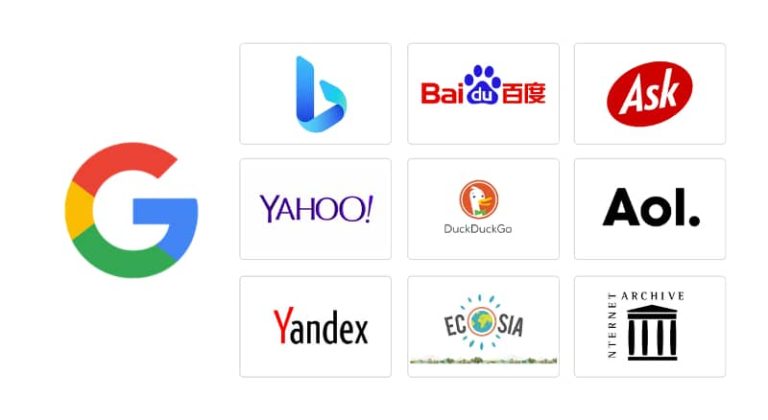17 Best Alternative Search Engines To Google You Can Use Now
The grip that Google has on the world of online search is undeniable. According to Oberlo, the search giant processes 99,000 search queries every second, making it the most preferred search engine we use daily.
Yet, beneath the surface of its sleek logo and unrivaled search algorithms, many users find themselves grappling with uneasy questions. How is our data being used? Are the Google search results truly impartial or skewed by commercial interests?
With rising concerns over data privacy and the urge for a more tailored browsing experience, most users like you have started looking for alternative search engines beyond Google.
Read on, as this article will walk you through an extensive list of Google alternative search engines.
Why Look For A Search Engines Other Than Google?
Google’s Fast works perfectly on every device and is free; why do you need an alternative? Well, if you are looking for other options to browse the online world, you already know what’s wrong with the “number one” search engine.
Based on the data and users’ preferences, we have determined the top reasons why people look for alternatives to Google.
Ad-Heavy Results
Do you hate scrolling past the numerous “sponsored links” whenever you look something up online using Google? You’re not alone! With the increasing number of online businesses, the Google ads per search query have also increased.
If you don’t want ads to be smashed on your face every time you initiate a search query, it’s better to look for an alternative search engine other than Google.
Privacy Concerns
When asked, “Why do some people choose alternative search engines over Google?” on Quora, a user replied, “he does not like being tracked.” Google has been accused several times of gathering users’ data, and that’s another reason to switch to a different search engine.
Specialized Searches
If you need a search engine tailored to specific niches, like academia, business, or the tech world, you should look for websites like Google. For instance, if you want to search by image, Yandex is a better choice than Google.
Beyond The Search Giant: 17 Other Search Engines Besides Google
For your ease, we have classified the search engines into different categories. Based on the purpose of your search and preferences, choose a search engine and start browsing.
Mainstream Alternatives
- Yahoo
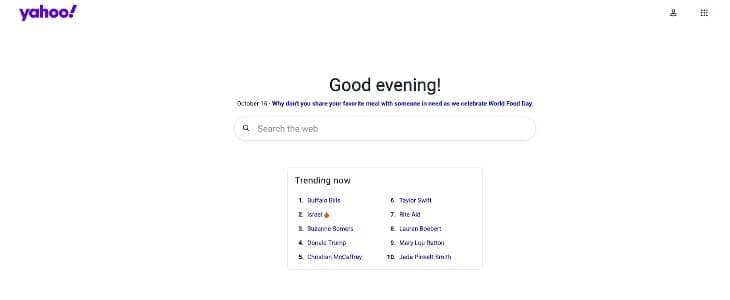
Yahoo! was once the biggest search engine and still holds around 3.17% of global online searches. While it is powered by Bing’s search technology in the background, Yahoo! remains unique due to its integrated web portal. It offers news, email, finance, and more, all from its main page.
If you want to search for News, Finance, or Sports, this open source search engine like Google can offer results personalized to your needs. You can even hop on the latest news by clicking on the “Trending Now list” right under the search bar.
- Bing
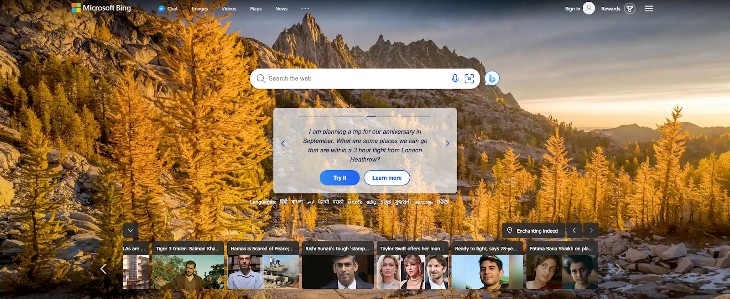
Bing is no longer the search engine it used to be; now, it’s faster and better! The AI-integrated search feature has made it a great search engine for advanced search queries and personalized results.
Most features Bing offers are similar to Google, such as quick calculators, featured snippets, and more, so it won’t feel like a major shift from Google. The visual imagery in the background makes this Microsoft search engine a true delight.
Fact: After Google, Bing is the second most used search engine in the United States. If you are an SEO, you cannot miss Bing, as it is a treasure trove of business opportunities.
Want to rank your site for Bing and every other search engine? Schedule a free call, and let’s figure it out.
Nothing can beat this AI-powered search engine when it comes to image search. You can even give prompts from within Bing for personalized results.
Privacy-Focused Search Engines
- DuckDuckGo
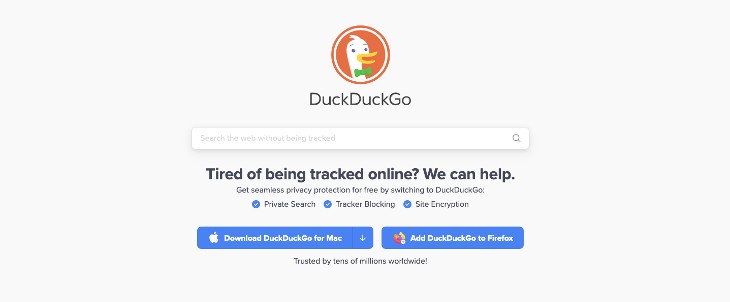
If online privacy is your biggest concern, you won’t regret using DuckDuckGo. While the market share of this privacy-focused search engine has declined from 2.6% to 1.94%, people still prefer using it because it is a safe search alternative to Google.
You can initiate a search without worrying about your data or personal information being collected. One of the notable features of the search engine DuckDuckGo is “Bangs Search.” You can use it to search on other sites such as Wikipedia, Amazon, and more, keeping your privacy intact.
- Qwant

Qwant is a privacy-centric search engine based in France that guarantees neutrality and impartiality. Unlike Google, there are no tracking or advertising cookies, so your browsing experience will be seamless.
The search engine also has a dedicated junior version that shields young users from inappropriate content. The indexing engine that Qwant uses is combined with Bing to prevent the users from getting stuck into a searchfilter bubble.
The best part about using Qwant is that the European policies are stricter than the U.S. ones, which takes your privacy to another level.
- OneSearch

OneSearch is relatively new compared to Qwant but offers excellent browsing privacy. There is a dedicated advanced protection mode that shields you from potential threats and keeps your personal information protected at all times.
The search results displayed by OneSearch will remind you of Bing, and you can smoothly navigate through multiple pages. There are fewer ads compared to Google, which means fewer distractions.
Even if you keep the privacy mode off, there are still several layers of protection guarding your data. We recommend using OneSearch for online shopping, as it gives you unfiltered results.
Notable Difference: The meta descriptions displayed on OneSearch are bigger than Google’s (155 characters), and you get the most information about the page from the description itself.
Localized & Regional Search Engines
- Yandex

Though you might not have heard about Yandex before, it’s the fifth most popular search engine worldwide. The search experience is similar to Google, however, the results are highly localized and mostly ad-free.
On the homepage, there are several quick-browse icons that’ll help ease your search experience. “Regarding privacy, someone on Quora asked if Yandex protects their data. Several Yandex users answered that they had no privacy-related concerns with this search engine.”
If you are based in Russia, you will find integrated services like Yandex Disk (cloud storage), Yandex Music, and Yandex Taxi helpful.
- Naver

Naver is one of the largest local search engines in South Korea that offers a range of options such as music, shopping, news, and blogs. Like Google, it also has a mobile app to install to search for anything on the go.
If you are based in Korea or want to search for something around the Korean market, this search engine can fetch tailored results.
Academic And Scholarly Search Engines
- Microsoft Academic
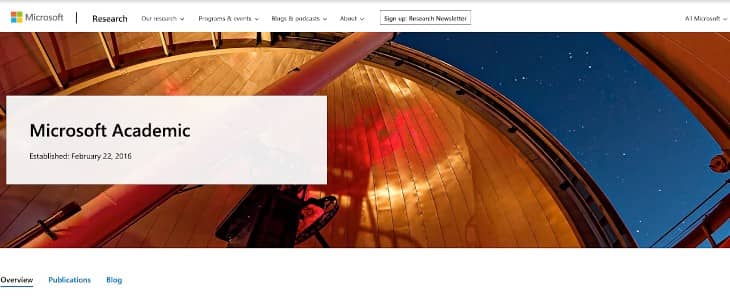
If academic research is your domain of interest, Microsoft Academic stands as a commendable search engine customized to your needs. Despite experiencing a fluctuation in its user base, this scholarly search engine continues to be a popular choice among researchers and academics, given its comprehensive database and intuitive interface.
According to LSE, “Microsoft Academic receives the least traffic compared to Google Scholar and other prominent search engines.” However, the ample filtering feature still makes it an excellent choice for finding scholarly articles quickly.
One of the standout features of Microsoft Academic is its “Graph Search,” which enables users to explore academic relationships and connections between papers, authors, and institutions.
- PubMed
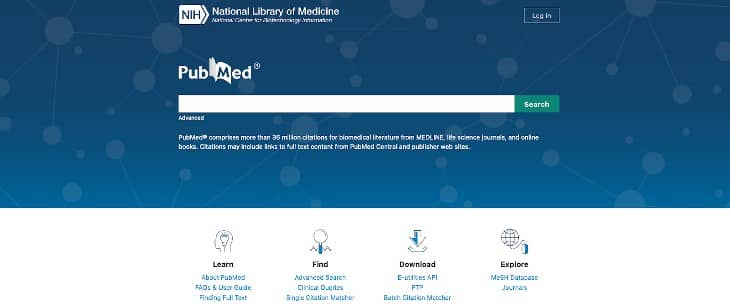
If you are navigating the complex terrains of biomedical literature and life sciences, PubMed is an invaluable resource you can’t miss. Administered by the National Center for Biotechnology Information (NCBI) at the U.S. National Library of Medicine, PubMed offers access to over 30 million citations, providing a wealth of information if you are a medical professional, researcher, and health enthusiast.
The search engine’s reputation for reliability and comprehensiveness is reflected in its steady user engagement, with millions relying on PubMed for accurate and up-to-date biomedical information.
Various sources have said that PubMed is a reliable resource for highly authoritative and trustworthy scholarly articles.
- JSTOR

I will call JSTOR a vast digital library for academic journals, books, and primary sources, as it stands as a bastion of knowledge. The extensive archive, encompassing a wide array of disciplines, ensures that you have access to the rich tapestry of scholarly content.
JSTOR’s commitment to academic excellence is evident in its consistent user base with institutions and individuals alike turning to this platform for rigorous research and study. (The search engine receives more than 8 million monthly organic visitors.)
What I absolutely love about JSTOR is its “Text Analyzer,” as it allows you to upload a document to find similar content within the search engine’s database.
- ScienceDirect

ScienceDirect is a powerhouse of knowledge, providing access to a vast collection of scientific articles, journals, and books. Managed by Elsevier, this search engine caters to a diverse audience, ranging from scientists and researchers to professionals across various fields.
The precise search capabilities make finding information a breeze, which empowers you to refine your search queries with a plethora of parameters and filters. When you scroll below the search bar, you get access to plenty of the latest published articles.
ScienceDirect also lets you publish scholarly articles. You can easily track your accepted paper and have all the information regarding the scholarly content you have submitted in a few clicks.
Fundraising And Charity Search Engines
- Ecosia
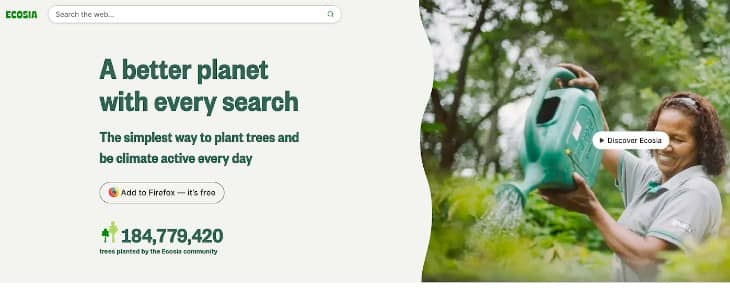
Ecosia is an eco-friendly search engine that uses its ad revenue to plant trees worldwide. Using this search engine instead of Google, you can directly contribute to reforestation projects and combat climate change without spending a dime.
The platform is transparent, providing regular updates on the number of trees planted and the projects funded.
An interesting fact: Ecosia had already planted more than 184,779,420 trees when I wrote this article.
- Givero

If you want to support different causes, such as animal welfare or children’s charities, Givero is the search engine you should use. A significant portion of the revenue generated from searches goes directly to the user’s chosen cause.
Givero combines the utility of a search engine with the satisfaction of giving back, making philanthropy accessible to everyone.
- Elliot For Water

Elliot for Water is on a mission to provide safe and clean drinking water to people in need. By allocating 60% of its profits to water-related projects, you can have a tangible impact on global water accessibility with every search.
The search engine turns a daily activity into a life-saving gesture, contributing to improving communities worldwide.
Format-Specific Search Engines
- Unsplash

If you are writing your next article or planning a social media campaign and need engaging visuals, head to Unsplash. The search engine is home to billions of images you can use for free (some stock images are paid).
The categoric searches make it quicker to filter images and visuals based on your interests. Compared to Google, Unsplash offers high-quality images, and you don’t have to worry about copyright issues (make sure to read their privacy policy first).
- YouTube
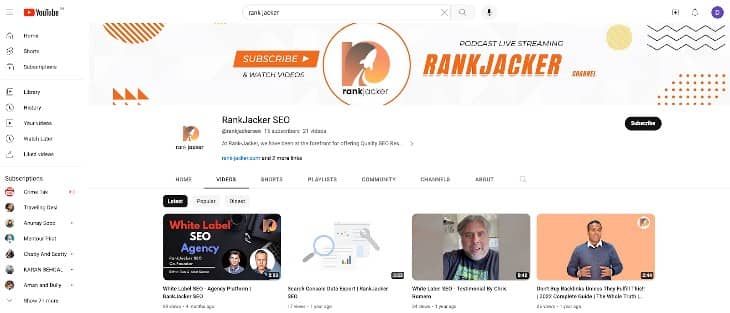
First, YouTube is not Google, it is a subsidiary of the search engine giant. The reason for listing YouTube on this list is evident, it is the biggest video and audio search engine out there.
Though the ads might be annoying, you can switch to YouTube Premium for a smooth streaming experience. Just like Google, YouTube also fetches accurate results, even if you enter partial keywords.
If you frequently search for videos and podcasts, YouTube should be on your search engine list.
- GIPHY

Want to search for your favorite GIF but don’t know where to look? You need GIPHY, the biggest search engine for GIFs. What makes this platform better than Google is the personalized results.
There are more than 10 billion GIFs on GIPHY that you can use on social media as well as other platforms. On the homepage, there are multiple categories, including trending, artists, and stories, so finding GIFs won’t give you a hard time.
Tips To Optimize Your Website For Alternative Search Engines
Since you are here reading this article, I’m sure you have a link with the SEO or the content industry. If you want to know what you should be doing differently to rank your site on these popular search engines, then follow these simple tips.
Understand Their Algorithm
Each search engine has its unique algorithm. Take the time to understand how these algorithms work and what they prioritize. For example, Ecosia uses Bing’s algorithm, so optimizing for Bing will also optimize your site for Ecosia.
Focus On Quality Content
High-quality, relevant, and informative content is crucial, regardless of the search engine. Ensure your content provides value to your visitors and incorporates keywords naturally.
Optimize For Mobile
With the increasing use of smartphones, make sure your website is mobile-friendly. Google may be the dominant search engine, but alternative search engines also prioritize mobile optimization.
Build High-Quality Backlinks
It is essential to prioritize building high-quality backlinks from authoritative websites. Backlinks are a crucial ranking factor for most search engines. (Don’t know how to build backlinks? Buy permanent high DA backlink packages and outrank your competitors today)
Also Read: The Best Way To Link Building Services That Actually Work
Optimize Local SEO
For search engines that prioritize local results, such as Bing or Yahoo, ensure your local SEO is on point. Claim your business listings, maintain consistent NAP (Name, Address, Phone Number) online information, and encourage positive reviews.
Engage In Community And Forums
Engage with the user communities of different search engines. It can provide insights into what users of those search engines are looking for and how you can better cater to them.
That’s a Wrap!
Whether you are an SEO, a digital marketer, or a content creator, Google is not the only search engine to try your hands on. I hope this list has helped you choose a search engine for the specific purpose you want it.
If you found this article helpful, make sure to subscribe to our value-packed newsletter and stay updated about the SEO world.
Want to know why your site is not getting results on Google and other search engines? Book a free consultation call today, and let’s fix this together.









Helping Agencies & Marketers achieve their true potential with our targeted, measurable, and result-driven SEO Solutions.
Feel confident in every purchase you make with us. If for any reason we are not able to keep up to our words and you aren't satisfied, contact us within 7 days of receiving your report & we'll ensure to make it right, if not, we provide a full refund.




